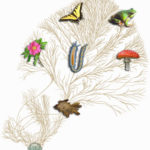 Whilst the UK has perhaps not been at the forefront of capitalizing on more generic health data, they are certainly among the leaders in terms of genomic data. The UK Biobank lead the way, but a recent project announced by the Wellcome Sanger Institute highlights the widespread nature of progress.
Whilst the UK has perhaps not been at the forefront of capitalizing on more generic health data, they are certainly among the leaders in terms of genomic data. The UK Biobank lead the way, but a recent project announced by the Wellcome Sanger Institute highlights the widespread nature of progress.
The Institute recently announced that the genetic codes of 66,000 species will be sequenced as part of a wider project to sequence the genomes of all 1.5 million known species of animals, plants, protozoa and fungi on Earth.
The project, which is known as the Earth BioGenome Project (EBP) is being undertaken by a consortium of scientific partners from around the world that ultimately hopes to create a new foundation for biology that helps to preserve diversity.
Tree of Life
The UK part of the project, which is called the Darwin Tree of Life, is based at the Sanger Institute, but the project will receive input from the Natural History Museum in London, Royal Botanic Gardens, Kew, Earlham Institute, Edinburgh Genomics, University of Edinburgh, EMBL-EBI and others in sample collection, DNA sequencing, assembling and annotating genomes and storing the data.
The £100 million project is expected to take around 10 years to sequence all 66,000 species, and will use PacBio® long-read technology and protocols.
As with so many genomics-related projects, the Darwin Tree of Life is largely possible due to the tremendous advances made in sequencing technologies that have allowed genomes to be sequenced faster and more cost effectively than ever before. The data from this project, which will be stored in the public domain and freely available for research use, is part of a wider body of work done by the Natural History Museum via their open data portal, which is one of the largest natural history resources in the world.
The team believe that the work will transform mankind’s understanding of biology and evolution, whilst significantly improving our ability to protect and restore biodiversity around the world.
“Globally, more than half of the vertebrate population has been lost in the past 40 years, and 23,000 species face the threat of extinction in the near future. Using the biological insights we will get from the genomes of all eukaryotic species, we can look to our responsibilities as custodians of life on this planet, tending life on Earth in a more informed manner using those genomes, at a time when nature is under considerable pressure, not least from us,” they say.